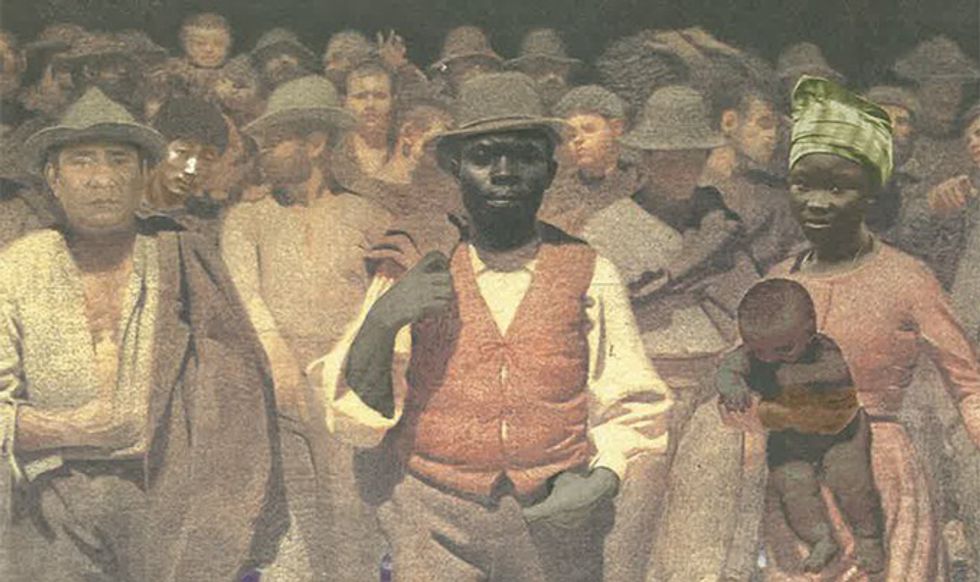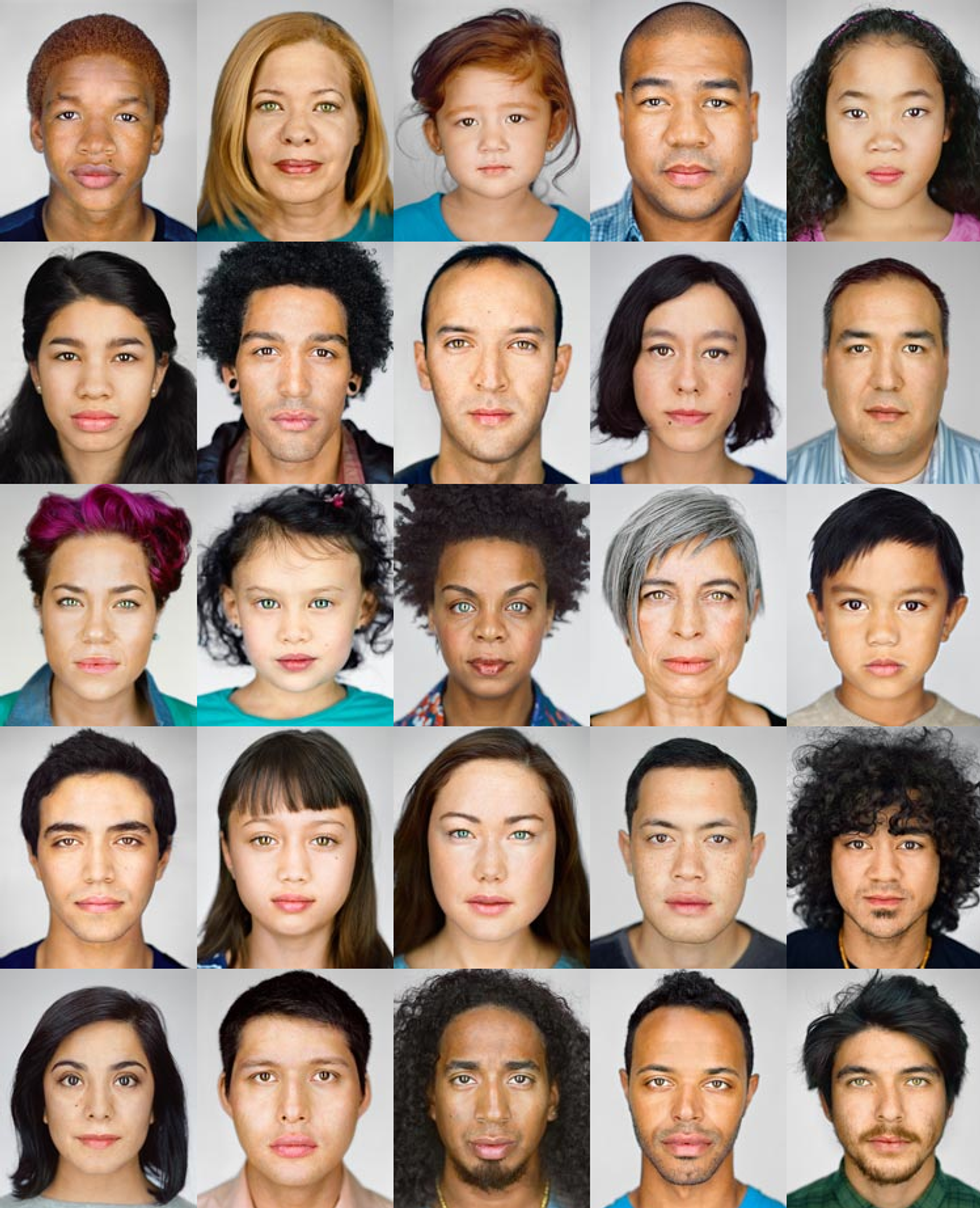Although it has existed for years, the alternative right movement has emerged into the media spotlight following the 2016 US presidential election. The alternative right is a loose, mainly online network of individuals advocating for white supremacist ideas. It is typically referred to as the “alt-right,” likely in an attempt to represent its brand of white nationalism with more subtlety, while drawing a distinction between the movement and both mainstream conservatism and terrorist organizations like the Ku Klux Klan. Because the group is not formally organized, it espouses various ideologies and intentions for America, which all maintain white supremacy as a unifying theme; this expression has taken many negative forms, including racism, anti-feminism, homophobia, and prejudice against religious groups like Jews and Muslims.
As well, the alt-right has continuously vocalized its support for President-elect Donald Trump throughout the past year, hailing him for their “victory” in the election. After months of virtual silence on the movement, Trump recently expressed his disavowal of the white supremacist group, claiming that he does not seek to “energize” it.
However, some individuals were not so quick to accept Trump’s statement, especially given the ongoing controversy over his appointment of Steve Bannon to the presidential cabinet and his remarks about David Duke this year. Still, the alt-right and its leader, Richard Spencer, have faced the harshest criticisms. Following the release of video footage of an alt-right conference over a week ago, the US Holocaust Museum issued a statement condemning Spencer and the alt-right because of its adoption of Nazi rhetoric and ideologies.
Notable journalist Roland Martin later interviewed Spencer about the conference and the group itself. When challenged about alt-right members’ use of the Nazi salute at the conference, Spencer attempted to dismiss these actions as “fun and exuberance.” Throughout the interview, Spencer avoided use of the terms “white nationalist” and “white supremacist,” instead employing euphemisms like “alt-right” and “identitarian.” He further attempted to make the case for the alt-right by proposing a sense of pride for white people and the “genius of Europeans.”
However, as the interview progressed, he increasingly appeared ignorant about history, race relations, and current institutions in America; he implied a stark denial of white privilege, further proposing that white people are underrepresented and face more discrimination than minorities. At a point, he even falsely argued that Egyptians are “white people, not Africans.”
Among his many assertions during the interview, Spencer made a comment that especially stood out to me; he said that race is the foundation of his identity and identity is at the heart of his ideology. Because race is a social construct, Spencer highlights the extent to which race has evolved as a tool of oppression in Western civilizations.
Many contemporary scholars agree that race was originally an invention in society, not based on scientific research. Earlier scholars only began arguing against “race” as a scientific term in the 1940s, posing that the idea of race indicates only “social realities” rather than “physical variations in the human species.” The inception of race as a legitimate tool in the West may have formed in the 18th century. English colonists first attempted to enslave the Irish, with whom they had poor relations for centuries prior.
However, as the demand for labor largely increased during the 17th century, the English needed stronger means to produce and fuel their intensified greed for economic and social power. Africans proved to be better laborers and held more immunity to “Old World diseases.” Thus, the English colonists became dependent on African labor, eventually believing that they could not survive without it.
In spite of their Western political philosophies, which focused on equality, democracy, human rights, etc., the English justified their enslavement of Africans by claiming that Africans were heathens who needed their souls cleansed and saved. By the 18th century, the institution of slavery was fully established; as the number of slaves grew in America, often outnumbering Europeans, the laws surrounding slavery became harsher.
As anti-slavery movements and rebellions arose across Europe and America, pro-slavery individuals and institutions wanted to form new notions to support the need for slavery. By focusing on physical differences between individuals of different nationalities, these pro-slavery institutions spread ideas about the inferiority of Native Americans and Africans based on “race.” These arguments further began to dictate social status, norms, and especially identity.
Across the world, especially throughout European countries, national identity, religion, etc., inspired a sense of nationalism, which motivated societies to colonize others; this nationalism was likely the underlying justification for imperialism. These concepts always maintained a sense of superiority and dominance for whichever groups adopted them, compelling them to seek and seize power and control. A similar idea has held true within American society itself. In a PBS interview with Robin D.G. Kelley, Kelley expresses a related argument:
“…something changed in the 17th and 18th centuries. And in some ways the creation of these new racial hierarchies were tied directly to the emergence of a New World economy. It's tied directly to the creation of a world system of slavery, the enslavement of Indian populations in Mexico, and the enslavement of Africans in Brazil and North America. You have a moment historically when Europe is expanding across the rest of the world… The first set of laws were laws that made African slavery permanent… [they] were property until death… Other laws were passed against interracial marriage… and interracial relationships, [which] had been fairly common in the early part of the 16th and 17th centuries. By the late 17th and early 18th century a lot of that stuff was outlawed… And that in some ways helped destroy any potential for unity across those color lines and made the line sharper between black and, white, or white and other… here you get the formation of a really foundational system of racism which was necessary in order for America to become both a democracy on one hand and a slave state on the other.”
Of course, many other factors contributed to general American and societal perspectives of race; as well, there have been numerous effects from these perspectives. The results have nevertheless contributed to an idea, among some individuals, groups, and institutions, that skin pigmentation indicates a level of value. Our modern conceptions of race were shaped and altered through the efforts of ethnologists, race scientists, and civil rights leaders, who were emboldened enough with knowledge and conviction to work over time to change specific norms in American society. This process took very much time and effort.
Even with progress from past decades, current race relations are far from ideal, and some think that they are actually getting worse. Yet, there is no general consensus on the state of race relations in American society, potentially because the experiences of Americans are widely varied in regard to race. The concept of racial identity is deeply ingrained in American society, to the extent that it regularly motivates identity politics; I believe that this is a key issue with race in America. The alt-right embodies white identity politics, further expressing a dangerously narrow and seemingly uneducated perspective on race. Thus, I often wonder what the future holds for the idea of race in America.
Based on data about racial mixing from the US Census Bureau, it appears as though the line distinguishing racial identities will become increasingly blurred over the next few decades. The US Census Bureau let respondents check more than one race for the first time in 2000, and 6.8 million people did so. In 2010, the number increased by about 32% to nearly 9 million. It is very likely that, in just a few decades, more mixed race individuals will populate America.
However, many changes are still necessary to benefit race relations or even remove the idea of race itself. As I see it, there are a few possibilities for what could change to diminish the role of race in our society.
Despite the fact that there is no genetic basis for race, many view race as a biological category; a headline saying “Widely used hypertension drugs less effective in black patients” wrongly implies that body chemistry is different based on a social aspect of one's identity. A change in assumptions like this one require an alteration in political interests because race has always served a political purpose.
As well, as the millennial generation appears to be generally more tolerant than past generations, it is possible that racial stereotypes will continue to break down. Identity should not be limited to race, as individuals of all races contradict stereotypes throughout our society.
Another significant detriment to the future of race relations is the federally mandated categorization of Americans in itself. On the census and other government forms, race is still perpetuated as a means for one to identify oneself; this is not an accurate representation of the American populace because it does not include any useful, distinguishing factors among citizens outside of skin pigmentation. If a more accurate method of identification is enacted, it is possible that social policies will no longer target race as holding any legitimacy.
However, changes like this also require political influences. So, I think that people of color should lead this effort. According to Angela Glover Blackwell, founder and CEO of PolicyLink, “people of color—blacks, Asians, Latinos—are on the verge of doing something white people did a long time ago: identifying themselves as a group and emerging as a powerful majority.” This is true. The US Census predicts that by 2044, white people will be the minority in America as a result of declining fertility rates among whites, the increase in immigration, and the increase in interracial relationships.
Blackwell went on to say that white people didn’t identify as a race until it politically and economically benefited them to do so; “they were just Irish, Italian, Greek, etc.” before. Current racial minorities have the opportunity to lead the “direction of the nation” with a “strong voice” for every American. Racial groups should no longer defer to identity politics as the means to make beneficial changes in the country because the idea of race itself is the problem.























